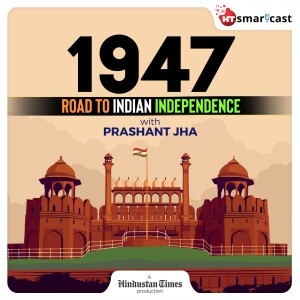
As the civil disobedience movement faded, the British embarked on a political exercise to defuse nationalist aspirations — in a way that would help the Empire retain absolute political control. This manifested itself in the Round Table Conferences, the Government of India Act 1935, and the 1937 provincial elections, in which the Congress participated and performed exceedingly well.
But each of these measures had both intended and unintended consequences. Why did the Congress have an ambivalent attitude to the Round Table Conferences? What was the 1935 Act do and what were its long term implications? And did being in power give Indian nationalists prepare them for the future, or did it deepen the Hindu-Muslim faultline within Indian nationalist movement?
In this episode, the scholar Arvind Elangovan reconstructs the years of British Indian constitutionalism and explains its long lasting legacy.
view more
More Episodes
Ep 13: Series finale - The story of Azaadi
 2022-08-14
2022-08-14
 2022-08-14
2022-08-14
Ep 12: A Second Mutiny, a final challenge
 2022-08-14
2022-08-14
 2022-08-14
2022-08-14
Ep 10: It’s time: Quit India
 2022-08-12
2022-08-12
 2022-08-12
2022-08-12
Ep 8: The Mahatma’s March
 2022-08-12
2022-08-12
 2022-08-12
2022-08-12
Ep 7: When India stopped cooperating
 2022-08-12
2022-08-12
 2022-08-12
2022-08-12
Ep 5: When the Mahatma returned home
 2022-08-10
2022-08-10
 2022-08-10
2022-08-10
Ep 4: In Lucknow, a moment of unity
 2022-08-09
2022-08-09
 2022-08-09
2022-08-09
Ep 3: In Bengal, a partition and a movement
 2022-08-09
2022-08-09
 2022-08-09
2022-08-09
Ep 1: The Mutiny that ended Company Raj
 2022-08-09
2022-08-09
 2022-08-09
2022-08-09
01235678910111213
Create your
podcast in
minutes
- Full-featured podcast site
- Unlimited storage and bandwidth
- Comprehensive podcast stats
- Distribute to Apple Podcasts, Spotify, and more
- Make money with your podcast
It is Free
- Privacy Policy
- Cookie Policy
- Terms of Use
- Consent Preferences
- Copyright © 2015-2024 Podbean.com






